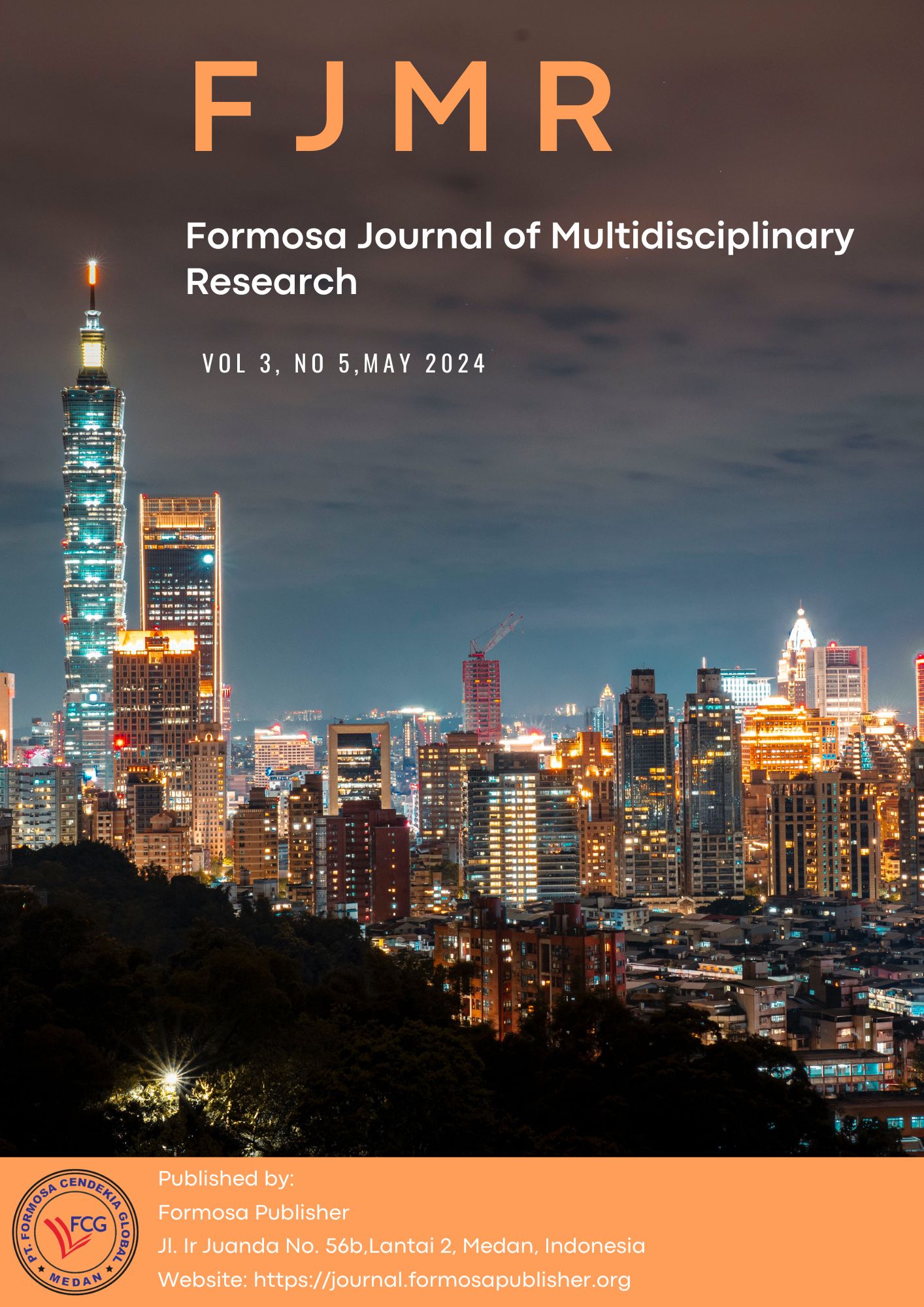Integrating Islamic Worldview for Sustainable Identity in Science Textbooks in Indonesia
DOI:
https://doi.org/10.55927/fjmr.v3i5.9052Keywords:
Basic Natural Science, Islamic Science, Science IntegrationAbstract
Indonesia has a majority Muslim population and has challenges maintaining and strengthening Islamic identity and values in globalization and Western cultural influences. Western influences enter the education sector, especially science education, primarily through textbooks. Science textbooks in Indonesia are often based on Western science paradigms rooted in a naturalistic or materialistic worldview, which contradicts the Islamic worldview. This article explores the Islamic worldview in Basic Natural Science textbooks to strengthen the identity and sustainability of Islamic values in Indonesia. Incorporating the Islamic worldview in science education can provide a holistic and integrated approach to learning, aligning scientific knowledge with Islamic teachings and principles. Although not comprehensive, the Islamic worldview is present in Indonesia's Basic Natural Science textbooks. Steps to strengthen Islamic identity and values in science learning are carried out by Emphasis on understanding the creation of the universe by Allah, integration of moral and ethical values in the context of science, introduction to the contributions of Muslim scientists in the history of science, explaining natural phenomena in the perspective of the Islamic worldview, and correcting science concepts that are not following the Islamic worldview.
Downloads
References
Afridi, M. A. (2013). Contribution of Muslim Scientists to the World: An Overview of Some Selected Fields. Revelation and Science, 3(01), 40–49. https://journals.iium.edu.my/revival/index.php/revival/article/view/86
Al-Attas, S. M. N. (1995). Prolegomena to the Metaphysics of Islam: an Exposition of the Fundamental Elements of the Worldview of Islam. International Institute of Islamic Thought and Civilization (ISTAC).
Bakar, O. (1991). Tawhid and science: essays on the history and philosophy of islamic science. Secretariat for Islamic Philosophy and science.
Baker, M. C., & Goetz, S. (2011). The soul hypothesis: Investigations into the existence of the soul. A&C Black.
Bayu, D. (2022). 86.9% of Indonesia’s population is Muslim. dataindonesia.id. https://dataindonesia.id/varia/detail/sebanyak-869-penduduk-indonesia-beragama-islam
Choudhury, M. A. (2019). Meta-science of tawhid: A theory of oneness. Springer.
Faruqi, Y. M. (2006). Contributions of Islamic Scholars to the Scientific Enterprise. International Education Journal, 7(4), 391–399.
Hassan, M. K. (2016). The Necessity of Studying the Natural Sciences from the Qur’anic Worldview. In Islamic Perspectives on Science and Technology (hal. 35–56). Springer Singapore. https://doi.org/10.1007/978-981-287-778-9_4
Idris, M., Mokodenseho, S., Willya, E., & Otta, Y. A. (2022). Integrating education, environment, and Islamic values as an effort to improve environmental ethics and literacy. Journal of Islamic Education Policy, 7(2). https://doi.org/10.30984/JIEP.V7I2.1966
Jasin, M. (2019). Ilmu Alamiah Dasar. Raja Grafindo.
Khakim, U., Kurniyanto, T., Ramadhan, M. U. C., Habiburrahman, M., & Rahmadian, M. I. (2020). God and Worldview according to al-Attas and Wall. TSAQAFAH, 16(2). https://doi.org/10.21111/tsaqafah.v16i2.4853
Niyozov, S., & Memon, N. (2011). Islamic Education and Islamization: Evolution of Themes, Continuities and New Directions. Journal of Muslim Minority Affairs, 31(1), 5–30. https://doi.org/10.1080/13602004.2011.556886
Law of the Republic of Indonesia number 20 of 2003 on the national education system, (2023).
Sahin, A. (2018). Critical Issues in Islamic Education Studies: Rethinking Islamic and Western Liberal Secular Values of Education. Religions, 9(11), 335. https://doi.org/10.3390/rel9110335
Walters, K. (2010). Atheism: A guide for the perplexed. Continuum.
Weber, R. P. (1990). Basic Content Analysis. In Basic Content Analysis. SAGE Publications, Inc. https://doi.org/10.4135/9781412983488
Yusmarti, R. (2017). The concept of integrated character education in science subjects. Jurnal As-Salam, 1(2), 55–64. https://jurnal-assalam.org/index.php/JAS/article/view/85
Yusuf, M. (2023). Integration of Science and Islamic Education: Bridging the Gap between Science and Religion. Salimiya: Jurnal Studi Ilmu Keagamaan Islam, 4(2), 119–133. https://ejournal.iaifa.ac.id/index.php/salimiya/article/view/997
Zarkasyi, H. F. (2013). Worldview Islam dan Kapitalisme Barat. TSAQAFAH, 9(1), 15. https://doi.org/10.21111/tsaqafah.v9i1.36
Zarkasyi, H. F., Arroisi, J., Salim, M. S., & Taqiyuddin, M. (2019). Al-attas’ Concept of Reality: Empirical and Non-Empirical. Kalam, 13(2), 113–142. https://doi.org/10.24042/klm.v13i2.5075
Zarman, W. (2016). The concept of nature in Islamic science teaching. https://doi.org/10.1063/1.4941196
Downloads
Published
How to Cite
Issue
Section
License
Copyright (c) 2024 Bahrum Subagiya, Sofyan Sauri, Budi Handrianto

This work is licensed under a Creative Commons Attribution 4.0 International License.








.png)





















